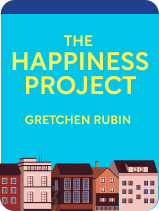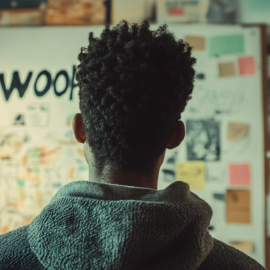

This article is an excerpt from the Shortform book guide to "The Happiness Project" by Gretchen Rubin. Shortform has the world's best summaries and analyses of books you should be reading.
Like this article? Sign up for a free trial here .
Do you feel like you could do with more fun in your life? What activities do you find fun anyway? Can you think of ways you could have more fun?
In our busy, ambitious lives, it’s easy to either forget about play completely or only engage in play that feels productive in some way. While it’s great to combine productivity and leisure, it’s also important to have more purse fun. That means doing activities because you want to do them—not because of their “productive” factor, money-making potential, or prestige.
In this article, we’ll focus first on seeking more pure fun, and then we’ll explore the ways you can have more fun in your everyday life.
What Do You Find Fun Anyway?
Before we explore how you can have more fun, it’s important to figure out what you find fun in the first place. It’s very possible that you’re not sure how you have fun—many people go through life participating in activities that they think they should enjoy instead of activities they actually enjoy. We do this with the goal of projecting a certain image of ourselves, and it’s an easy way to get sucked into activities that don’t feel good or right for us.
There are three parts to creating more opportunities for genuine fun.
- First, run through the ways you seek fun in your everyday life. For each activity, ask yourself: Do I look forward to doing this activity? Does it make me feel energized or drained? These questions will help you separate activities you truly enjoy from activities you’re doing simply because you feel that you should.
- Second, think of new ways to have fun. If you’re having trouble coming up with ideas, try writing down the ways you remember having fun as a child. It’s likely that what was fun for you at a time when productivity wasn’t a concern will still be fun for you now.
- Third, embrace your idea of fun and announce it to others. When you talk about your interests, you’re more likely to connect with like-minded people than if you kept your interests to yourself. An added benefit of talking openly about your interests is that you find “your people.” Research shows that each common interest you have with a person not only increases your chances of having a lasting relationship with them but also boosts your overall life satisfaction by 2%. Furthermore, the feeling of belonging to a group bolsters your confidence and your happiness.
Making Time for Fun
Fun activities often aren’t spontaneous—book clubs don’t just happen. To have more fun, actively work on making time for it.
A commitment to fun is important to keep in mind because it’s easy to put off leisure activities in favor of productive activity, such as working, spending time with your family, or taking care of the house. However, dedicating time to leisure gives you the energy to bring your best self to the things you “should” do. On the other hand, working nonstop and only doing productive activities will make you feel burned out, resentful, or too tired to fully engage.

———End of Preview———
Like what you just read? Read the rest of the world's best book summary and analysis of Gretchen Rubin's "The Happiness Project" at Shortform .
Here's what you'll find in our full The Happiness Project summary :
- How to increase the overall happiness in your daily life
- Why changing everything won't bring you happiness
- How to create your own year-long happiness project






